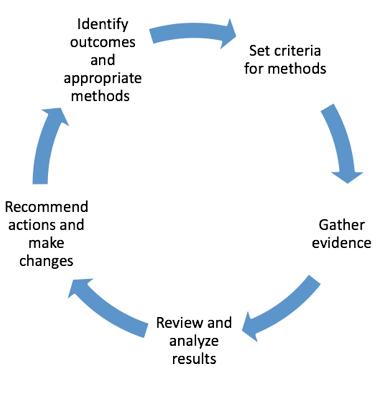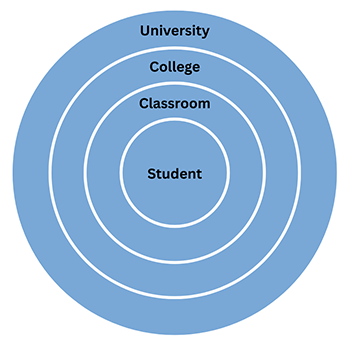Educational Assessment
Educational Assessment attempts to determine the importance and value of the education that students receive. Therefore, educational assessment also involves the process of documenting students’ knowledge, skills, attitudes, and beliefs in measurable terms to evaluate their learning. Assessment can focus on the individual learner, the learning community (a class, workshop, or other organized group of learners), the institution, or the educational system as a whole.
Assessment Process

Educational assessment attempts to determine:
- What do we want our students to learn? (What are the educational and professional outcomes we want our students to achieve?)
- In what ways can we help our students achieve these outcomes?
- How can we measure whether students have achieved these outcomes?
- How do we know whether students have retained what they’ve learned?
Why Do We Assess?

In education, students are the driving force behind everything we do. Educators deliver information in a variety of ways to help students accomplish the skills they need to continue on their own career paths.
Although on the surface, teaching and learning are taking place, we have a responsibility to ensure that the quality of the education we are providing meets our own expectations as well as the expectations of our students.
With assessment, we can feel more confident that students are graduating with proficient skills and have truly earned their degrees.
This becomes even more important in the College of Pharmacy, when we consider how much students’ education and experiences can impact the quality of care students will eventually provide to their patients.

